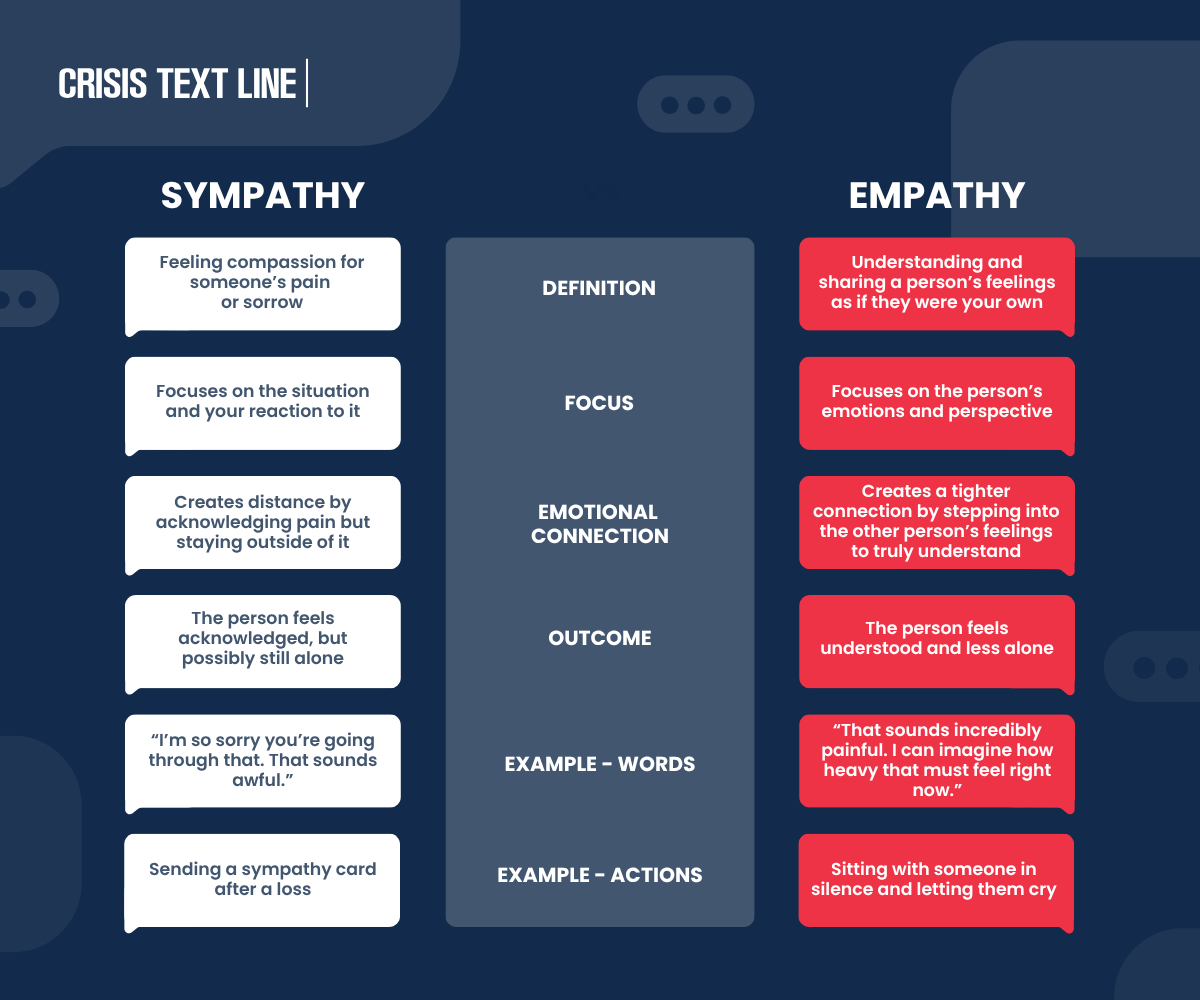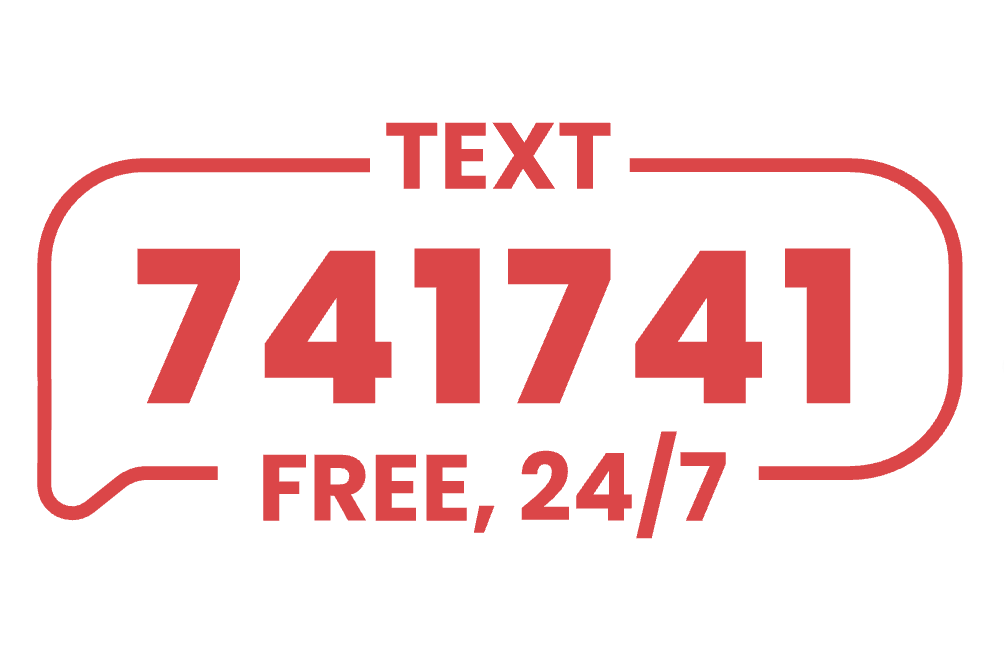Empathy vs. Sympathy — Why Both Matter

When someone is struggling, we want to show we care. We might say, “I feel bad for you,” or “I understand how you feel.” Both come from a place of compassion, but they aren’t quite the same. Empathy and sympathy are often used interchangeably, but understanding the difference can transform the way you connect and show up for others — at work, in friendships, with family, and in your own mental health journey.
In this blog, we’ll explore what each term means, whether you can have one without the other, and how both can strengthen your relationships and emotional intelligence.
What Is Sympathy?
Sympathy is recognizing someone’s hardship and feeling concern or sorrow for what they’re going through. It’s caring about another person’s feelings, even if you can’t fully understand what they’re experiencing.
For example, when a friend loses a loved one, you might say, “I’m so sorry for your loss.” When someone faces a tough diagnosis or a difficult breakup, you might send a message of support or spend time writing a sympathy card to let them know they’re not alone.
These gestures matter. They show compassion and care for another person’s feelings. Sympathy helps us acknowledge suffering without necessarily stepping into it ourselves. It’s a way of saying, “I see your pain, and I care.” While it may not always involve deep emotional connection, it can open the door to empathy and understanding.
What Is Empathy?
Empathy goes deeper than sympathy. Empathy is the ability to put yourself in someone else’s shoes in order to understand how they feel and see the situation from their point of view. It’s not just recognizing another person’s pain, but feeling it with them.
Empathy involves active listening, emotional awareness, and the ability to understand not just what someone is saying, but what they’re feeling underneath the words.
For instance, if a coworker is overwhelmed with burnout, instead of saying, “That must be stressful,” showing empathy sounds like, “It makes sense you’d be feeling stressed. I’ve had times when work felt all-consuming too. How are you holding up?” This approach invites more of an emotional connection.
By practicing empathy, we strengthen relationships and deepen trust. Empathy creates emotional safety, helping others feel truly seen and heard. It’s also a vital element of emotional intelligence, which is the awareness of our own emotions and having sensitivity to those of others. Empathy, however, doesn’t replace sympathy. Both have a place in caring relationships.

Can You Have Sympathy Without Empathy?
Absolutely. You can feel sympathy without fully understanding what someone else is going through. For example, you might feel sympathy for people affected by a natural disaster or global conflict. You care deeply about their situation, however you may not be able to imagine the fear, grief, or loss they are experiencing firsthand.
Sympathy and empathy often overlap, but they’re not the same and you don’t need one to experience the other. Sympathy helps us recognize the pain a person is feeling. Empathy helps us connect with it. Together, they make us more compassionate and emotionally intelligent individuals.
How to Practice Sympathy and Empathy
Both sympathy and empathy are skills that can be developed with practice and intention. Here’s how to nurture each:
To show sympathy:
- Acknowledge someone’s feelings. Simple words like “That sounds really hard” can mean a lot.
- Offer help or small gestures of kindness.
- Avoid minimizing or comparing their struggle (“It could be worse.”).
To show empathy:
- Practice active listening. Focus on what someone is saying, without interrupting or rushing to respond.
- Try to imagine what it feels like to be in their situation. What emotions might they be feeling?
- Reflect back what you hear. For example, “It sounds like you’re feeling really isolated lately.”
Showing empathy doesn’t mean you will have all the answers when someone is hurting. It’s about creating space for someone else’s emotions to exist without judgment. As you think about how you show up for others, consider journaling or reflecting on times when you’ve offered sympathy versus empathy. Which comes more naturally to you? Which do you want to strengthen?
Join Crisis Text Line in Leading with Empathy
At Crisis Text Line, empathy is at the heart of what we do. Every day, our volunteer Crisis Counselors practice active listening with people who reach out for support. For us, empathy involves connecting with a texter’s feelings, helping them feel understood and supported, even in their darkest moments. The more we practice empathy and sympathy together, the closer we get to building a more compassionate world.
Does our mission resonate with you? We’re always looking for volunteers who believe in making the world a more empathic place. Join us today and become part of our incredible community of dedicated volunteer Crisis Counselors.
Unable to volunteer? You can still make an impact by joining our Empathy Network, a monthly donor community of hundreds of dedicated supporters committed to Crisis Text Line’s mission. Read more about the Empathy Network.
____
Both sympathy and empathy are essential to human connection and mental health, and we encourage you to practice them in your everyday life. The more we utilize them together, the closer we get to building a world where everyone feels heard, supported, and understood.
If you are struggling and need someone to listen with empathy, text CONNECT to 741741 to reach a trained volunteer Crisis Counselor. We’re here for you — 24/7, free, and confidential.

